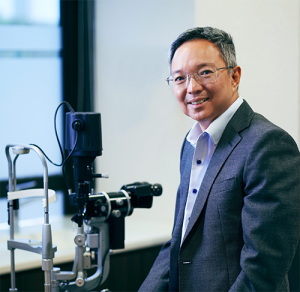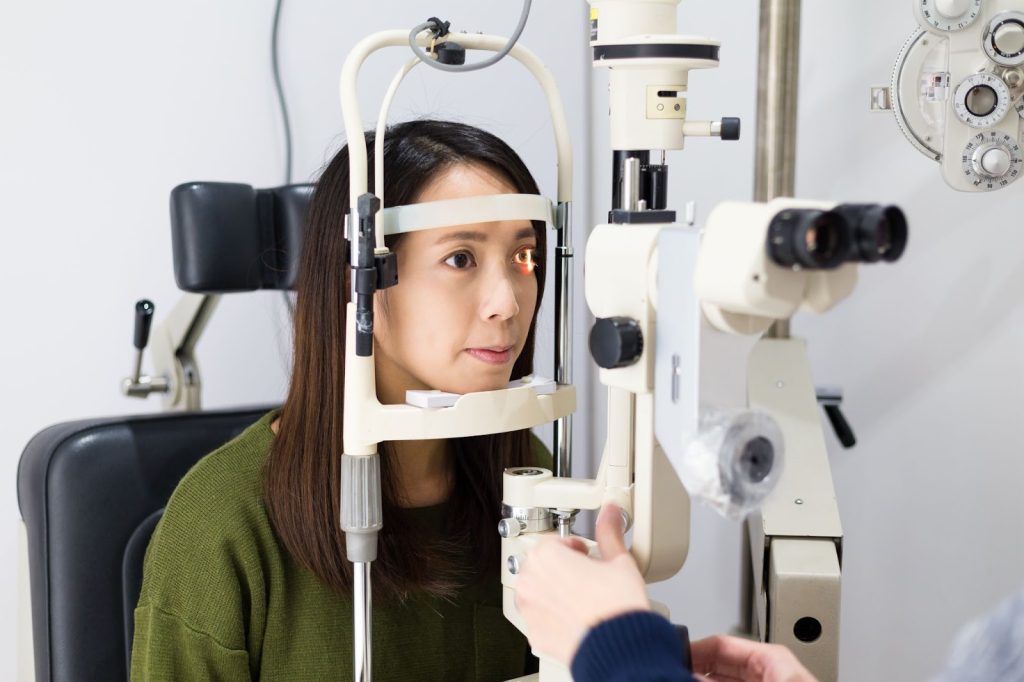In Singapore, glaucoma affects 3% of those aged over 40, and the risk increases with age, according to HealthHub. Living with glaucoma can be difficult and could affect your overall quality of life. With symptoms such as severe eye pain and blurred vision along with the stress of potential vision loss, finding the right care and support is crucial.
This is where an eye specialist, like EyeWise Vision, can help you. Our eye doctor has worked with numerous glaucoma patients over the years, providing them with the appropriate treatment and extensive information to prevent severe eye conditions in the future. With this, we also impart all the information you need to manage glaucoma symptoms daily.
Tips for Effective Glaucoma Management
Managing your glaucoma involves a holistic approach encompassing different aspects of your lifestyle. Here are some healthy habits to adopt that can help slow down the progression of glaucoma:
1. Exercise and Eat Healthily
It can’t be stressed enough how important healthy meals and exercise are, especially in managing glaucoma. Incorporate a diet rich in antioxidants, leafy greens, and omega-3 fatty acids. These nutrients have been shown to support overall eye health and may contribute to slowing down the progression of glaucoma. Additionally, you must adopt a diet low in saturated fats and refined sugars, which can benefit your cardiovascular system and your eyes.
Aside from eating healthy, you must also accompany it with regular exercise, as it can enhance blood circulation to your eyes. As a result, this reduces the risk of eye pressure buildup and improves your overall eye health. Activities like brisk walking and other specific exercises recommended by your eye specialist in Singapore can positively impact your eye health.
2. Follow Medication Regimens
If your doctor prescribes medication or eye drops to manage your glaucoma, adhere to the prescribed schedule diligently. These medications work to control intraocular pressure and prevent further optic nerve damage. You must understand the proper way to administer the eye drops to ensure their effectiveness. If you experience any side effects or difficulties with the medication, communicate openly with your doctor, who can adjust your treatment plan accordingly. Remember that consistently using medications as directed is crucial for managing glaucoma effectively.
3. Attend Regular Eye Exams
Routine eye examinations are the cornerstone of glaucoma management. Your eye specialist will monitor your condition, adjust your treatment plan as needed, and detect any changes in your vision early on.
Undergoing comprehensive eye exams can measure your intraocular pressure and assess the condition of your optic nerve and overall eye. By catching signs of progression or changes in the eye, you can get intervention as soon as possible to preserve your vision.
4. Monitor Your Vision
Stay vigilant about your vision and report any changes to your eye specialist promptly. Timely intervention can prevent vision loss and enhance the results of your glaucoma treatment. Regularly check for any alterations in your peripheral vision, as glaucoma often affects this aspect of eyesight first. Keep track of any visual disturbances, blurriness, or difficulty adjusting to different light levels. When you communicate openly about your symptoms, your eye specialist can tailor your treatment plan to suit your needs and promote better outcomes.
5. Manage Stress
High-stress levels can impact your intraocular pressure. As such, set aside time to engage in relaxation techniques like yoga, meditation, and deep breathing to keep your stress at bay. These practices not only contribute to your overall well-being but also have the potential to lower your eye pressure. Furthermore, consider integrating stress-reduction activities into your daily routine to maintain consistent benefits for your eye health.
6. Protect Your Eyes from Sunlight
Shielding your eyes from harmful UV rays is vital for maintaining eye health, as too much exposure can increase the risk of certain eye conditions, like cataracts and macular degeneration. Make sure to protect your eyes from UVA and UVB by getting glasses specially designed to block them. Additionally, wearing a wide-brimmed hat can provide added protection from overhead sunlight. Protecting your eyes from excessive sunlight exposure not only reduces the risk of eye conditions but also contributes to your overall eye comfort and long-term visual wellness.
EyeWise Vision Is Your Trusted Partner in Glaucoma Care
When it comes to comprehensive glaucoma care in Singapore, our eye doctor at EyeWise Vision is committed to providing you with personalised care that aligns with your unique needs. Our eye specialist can assess your condition and provide the appropriate treatment to slow glaucoma progression or avoid total vision loss, whether it’s medication or surgery.
To detect glaucoma in its earlier stages or determine if you are at risk of the condition, you can also undergo an eye screening at our clinic. That way, our eye specialist can provide you with lifestyle modification recommendations to prevent the onset of glaucoma or severe glaucoma symptoms. Learn more about glaucoma and your treatment options in Singapore today.

Dr. Christopher Khng, specializes in Complex Cataract and Anterior Segment Reconstruction Surgery, in particular, Iris Reconstruction and surgery for Aniridia. His other areas of expertise include Complex Lens surgery, New Lens and Phacoemulsification technologies, Refractive surgery, Phakic IOLs (the Implantable Collamer Lens, ICL), and small-incision, topical anesthesia phacoemulsification cataract surgery. Dr. Khng is a member of the Singapore Medical Association (SMA), a Fellow of the American Academy of Ophthalmology, the American Society of Cataract and Refractive Surgery (ASCRS), and the European Society of Cataract and Refractive Surgery (ECSRS). He is registered with the Singapore Medical Council (SMC) in Singapore and with the General Medical Council (GMC) for practice in the United Kingdom.

